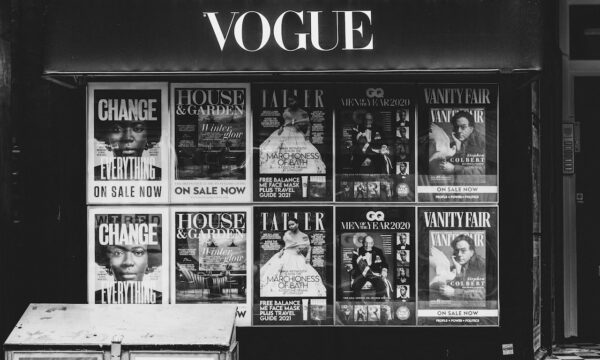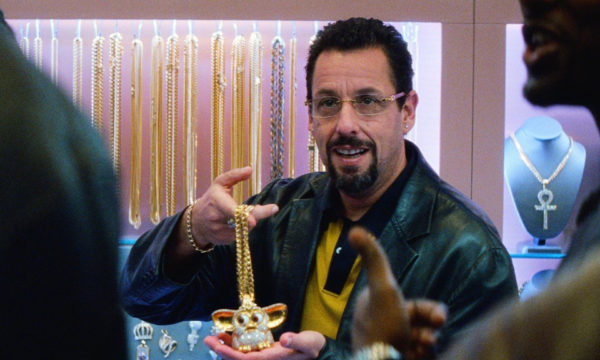CBD is gaining momentum: Is it all marketing or does it help?

Is all the hype around CBD just a marketing scam, or is this a real “miracle” remedy? This question exists in many people’s minds. Whether one has tried CBD and experienced no results or are considering using it but not sure if it’s worth the try, read below to find out why CBD has become so popular and why this natural remedy claims to be by no means a marketing scam.
CBD is the buzzword these days. There’s a lot of talk about it, from TV series to social media posts, medical experts and probably friends as well. But, how did this remedy gain so much popularity almost overnight?
Overall, the CBD industry is flourishing these days. In fact, this sector is enjoying so much popularity that it is expected to grow to $16 billion in the US only by 2025. What’s more, CBD is being added to pretty much every product on the market, from shampoos to edibles, drinks, breath sprays and even toothpicks. It is also sold in the more traditional forms of oil, vape juice, tincture and even naturally grown flowers, such as those from Organic CBD Nugs.
But, what exactly is CBD and why do people have contrasting opinions about this remedy? And, most importantly, what exactly is CBD used for?
CBD explained
At this point, most people have definitely heard about CBD at least once over the last couple of years because everybody is talking about it. One can’t open their social media apps or turn on the TV without seeing something about it.
Yet, hearing about it once or twice is adequate to make an informed decision on whether or not one should use CBD.
Let’s start with understanding what CBD is. CBD is one of the most prevalently found compounds in the hemp plant. Another prominent compound found in these plants, and CBD’s most popular sibling, is THC. Now, most people, especially those who have various misconceptions about CBD, tend to not understand the difference between the two.
So, here’s the deal with THC and CBD. They both come from the same plant. Yet, they have different effects on the body. To be more precise, THC is the compound that has intoxicating effects, giving the “high” feeling, euphoria, pleasure or forgetfulness. On the flip side, CBD does not have such intoxicating effects. In fact, to get a bit more technical about it, THC affects the CB1 receptors in our brains, the receptors responsible for feelings like euphoria, relaxation or anxiety, and short-term memory impairment. However, it’s claimed CBD can act as a blocker or a regulator of the intoxicating effects of THC.
To sum up and debunk the most widespread myth about CBD: it doesn’t get people high.
But if CBD doesn’t get one high, why do people use it?
CBD’s uses backed by science
The wellness industry markets CBD as some kind of cure-all. But, behind CBD’s popularity, there’s more than just creative ads or targeted marketing techniques. Several medical studies also back CBD’s potential health benefits.
Scientific studies claim to have proven that CBD may help with various medical affections, including chronic pain, anxiety and depression, epilepsy and even cancer. Yet, research on CBD is still in its early days. However, this doesn’t mean that the potential benefits of this compound one sees all over the media are just marketing hype. Rather, it means that new uses and potential benefits are yet to be discovered.
So, what potential benefits of CBD are backed by science so far?
Pain relief
Several scientific studies suggest that CBD has anti-inflammatory and pain-relieving properties. It seems that this compound can impact the endocannabinoid receptor activity in the body (involved in several psychological processes such as appetite, pain-sensation, mood and memory). By doing so, CBD claims to reduce inflammation and pain.
In some preclinical studies that were approved by the National Institutes of Health, CBD was also stated to reduce pain caused by various medical conditions such as multiple sclerosis and arthritis.
Insomnia
If one finds themselves regularly staring at the ceiling all night long without falling asleep, CBD may be a promising solution for their insomnia. During the Epidiolex (FDA-approved prescription CBD to treat epilepsy) trials, it has been noticed that one of the side effects felt by participants was drowsiness, which is considered to be a clue that CBD can be a new treatment for sleep disorders.
Anxiety
CBD is often marketed as a relief for anxiety symptoms. CBD users seem to trust its potential benefits for anxiety as 60% of those who use the natural substance use it for anxiety. But it’s not just ads that say that CBD can help with anxiety, scientific studies claim that it does also.
Researchers think that CBD might reshape the way our brain’s receptors respond to serotonin, the brain chemical linked to mental health and involved in regulating mood and social behaviour. For this reason, research suggests that CBD can have antidepressant-like properties.
Epilepsy
It’s already been two years since the US Food and Drug Administration approved Epidolex, an oral solution that includes a purified form of CBD oil and can be considered a treatment option for two types of epilepsy.
Studies suggest that CBD can reduce seizure activity and muscle spasticity, conditions found in people with multiple sclerosis, Dravet syndrome and epilepsy.
Cancer
It’s way too early to say that CBD can affect cancer treatment. But, so far, studies suggest that CBD might help prevent cancer cell growth.
Possible reasons why CBD doesn’t work for everybody
Whether one has tried CBD and felt nothing or heard about a mutual friend who did and saw no results, one may be tempted to think that CBD is just a marketing scam. But, before jumping to this conclusion, find out why CBD may not work for everybody. Here are a few possible reasons:
The CBD product isn’t from a reputable source
The right dosage of CBD isn’t being taken
One is not giving it enough time
One is not using the right delivery system
There’s no condition for CBD to treat
Before giving up on CBD altogether, especially if one hasn’t even tried it yet, use the reasons above as a checklist to figure out why CBD might not bring one the results they were hoping for. Then, as always, speak with a healthcare professional.
The editorial unit
The material contained in this article is of the nature of general comment only and does not give advice on any particular matter. Recipients should not act on the basis of this article’s information without taking appropriate professional advice.





















Facebook
Twitter
Instagram
YouTube
RSS